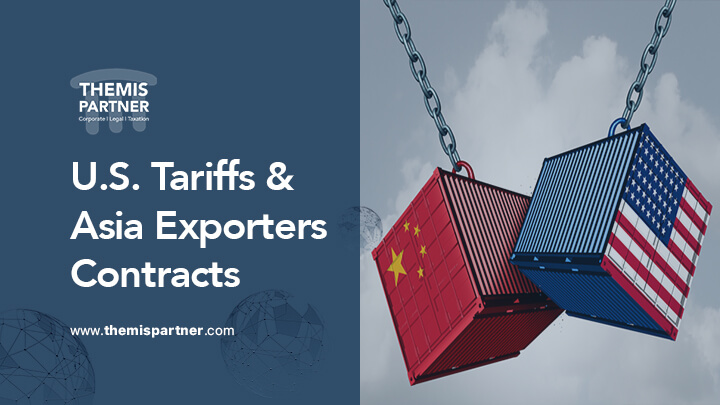How expanding your business into Asia can be benefit?
Expanding your business into Asia can be a game-changer for companies looking to drive growth and increase their revenue streams. The region offers a vast and diverse consumer market with over 4.5 billion people, representing more than 60% of the world’s population. Despite the recent economic slowdown, Asia continues to grow at a rapid pace, creating new opportunities for businesses across various sectors.
The region’s emerging middle class, which is projected to reach 3.5 billion by 2030, has created a significant demand for consumer goods and services. Additionally, Asia’s increasingly digital and mobile-first population presents unique opportunities for businesses in e-commerce, fintech, and other tech-related industries.
While expanding into Asia can be challenging, it offers tremendous strategic advantages such as access to new markets, reduced production costs, and potential partnerships with local businesses. With careful planning and a deep understanding of the region’s cultural and regulatory differences, businesses can position themselves to succeed in Asia and drive long-term growth.
Key Considerations for Successfully Expanding into Asian Markets
Expanding a business into Asia can be a complex process, and navigating cultural differences is critical to successfully establishing a presence in the region. Asia is home to diverse cultures, languages, and customs, and a lack of understanding of these differences can lead to miscommunication, misunderstandings, and ultimately failure.
It’s essential to conduct thorough research on the cultural norms, values, and business practices of the target country or region before expanding into Asia. Building strong relationships with local partners and employees who have a deep understanding of the culture can also help businesses navigate the local business landscape.
Language barriers are also a critical consideration when expanding into Asia, as English proficiency can vary widely across the region. Hiring bilingual staff or working with local translation services can help overcome these obstacles.
Overall, understanding and respecting cultural differences is key to building strong relationships, establishing trust, and ultimately succeeding in Asia’s diverse and complex markets.
Strategic Advantages: Why Asia is the Next Frontier for Business Expansion
1. Rapidly Growing Economy
Expanding a business into Asia offers many potential benefits, including access to rapidly growing economies. With a population of over 4.5 billion people, Asia is home to some of the world’s fastest-growing economies, making it an attractive market for businesses looking to expand their global footprint. By tapping into these high-growth markets, businesses can drive revenue growth, increase profitability, and position themselves for long-term success in the region. Despite the challenges of doing business in Asia, the potential rewards are significant for businesses that are willing to invest the time and resources to understand and navigate the complexities of the region.
2. Large Consumer Market
Expanding a business into Asia can provide access to the world’s largest consumer market. With a population of over 4.5 billion people, Asia offers significant opportunities for businesses in a range of industries, including consumer goods, healthcare, and technology. Rising middle-class incomes and changing consumer preferences are creating a growing demand for products and services in the region, making it an attractive market for businesses looking to expand their global reach. Despite the challenges of doing business in Asia, the potential rewards are significant for businesses that are willing to invest the time and resources to understand and navigate the complexities of the region.
3. Skilled Workforce
Expanding a business into Asia can provide access to a large pool of highly skilled workers. Many countries in Asia, particularly in industries such as technology, engineering, and healthcare, have a reputation for producing top talent. By tapping into this talent pool, businesses can benefit from lower labor costs compared to many Western countries and access highly skilled workers to help drive innovation and growth. Despite the challenges of doing business in Asia, the potential rewards are significant for businesses that are willing to invest the time and resources to understand and navigate the complexities of the region.
4. Favorable Regulatory Environment
Expanding a business into Asia can offer a favorable regulatory environment, which can provide businesses with a range of benefits, including tax incentives, free trade zones, and streamlined procedures for setting up and operating a business. Many countries in Asia have implemented pro-business policies to attract foreign investment, making it an attractive destination for businesses looking to expand their global footprint. Despite the challenges of doing business in Asia, the potential rewards are significant for businesses that are willing to invest the time and resources to understand and navigate the complexities of the region.
5. Strategic Location
Expanding a business into Asia offers a strategic location that can help businesses tap into the region’s growing markets and connect with other parts of the world. Many Asian countries have well-developed transportation and logistics infrastructure, making it easier to access markets throughout the region. Additionally, Asia’s location between Europe and the Americas makes it an ideal hub for businesses looking to expand their global reach. Despite the challenges of doing business in Asia, the potential rewards are significant for businesses that are willing to invest the time and resources to understand and navigate the complexities of the region.
Get the legal advice you need to navigate the complexities of the region's legal landscape.
310 client reviews (4.8/5) ⭐⭐⭐⭐⭐









